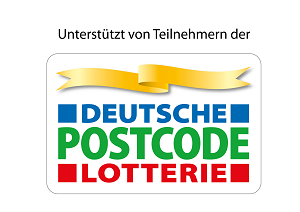Massive health benefits from stronger climate policies, shows new study
Health savings of up to 25 billion euros could be achieved every year in Europe if the European Union immediately opted for stronger climate policies, says a new study published by health and environment NGOs.
02.10.2008 |Press Release CAN, HEAL, WWF
Brussels, Belgium – Health savings of up to 25 billion euros could be achieved every year in Europe if the European Union immediately opted for stronger climate policies, says a new study published by health and environment NGOs.
The report, commissioned by the Health and Environment Alliance (HEAL), Climate Action Network Europe (CAN-E) and WWF, analyses the health benefits brought about by reduced climate pollution if the European Union increased without any delay its 2020 target for domestic greenhouse gas emission cuts from 20 to 30 per cent.
The findings show that raising the target to 30% in line with recommendations of the International Panel on Climate Change (IPCC) would produce savings resulting from better health valued at between 6.5 and 25 billion euros per year.
The estimates are based on economic evaluations of loss of life and health, working days lost and hospital costs. The findings show reductions in hospital admissions of 8,000 per year and two million fewer work days lost per year by moving to the higher 30% target.
These health savings are over and above the benefits of the European Union’s existing scenario of a 20 per cent target. The report shows that raising the target to 30 per cent would increase the savings by 25 billion, or 48%, from 51 to 76 million euros.
Génon Jensen, Executive Director of Health and Environment Alliance (HEAL) says: “Data clearly show that action to control global warming by reducing carbon and other greenhouse gas emissions brings major benefits to health. This potential alone makes a case for immediately moving the European target to at least 30 per cent domestic cuts of greenhouse gases by 2020. The European Union should be showing leadership on this crucial determinant of our future.”
The European Commission’s impact assessment estimated that currently every year 369,000 people die prematurely due to air pollution, and that premature deaths, health care and medication associated with air pollution amount to 3-9 per cent of EU Gross Domestic Product.
“Until now the discussion on climate change has been all about costs to industry and the economy, while costs of climate pollution to the society have largely been neglected”, adds Delia Villagrasa, Senior Advisor to WWF. “It is essential to see that measures to promote cleaner sources of energy and reduce fossil fuel consumption will not only contribute to control climate change but will also cut air pollution and improve quality of life for European citizens.”
With the current debate on the “EU climate and energy package”, a set of measures to cut greenhouse gases in Europe, the European Union has the opportunity to lead to way to keep global warming below 2 degrees Celsius compared to pre-industrial levels. NGOs call on the European Parliament to be ambitious and lift the bar for a 30 per cent cut of greenhouse gases by 2020.
“The report clearly demonstrates what scientists, economists, academics and NGOs have said before: action on climate change produces win-win-win scenarios. Tougher targets means a win for the planet, a win for European citizen’s health and a win for industry in reducing air pollution control cost,” stated Tomas Wyns ETS Policy Officer, Climate Action Network Europe.
For further information:
Génon K. Jensen, Executive Director, Health & Environment Alliance, tel. +32 (0)2 234 3641, mob. +32 (0)495 808732, email: genon@env-health.org
Delia Villagrasa, Senior Advisor to WWF, tel. +32 (0)2 7400935, mob. +32 (0)486 440 223, email dvillagrasa@wwfepo.org
Tomas Wyns, Climate Action Network Europe, tel. +32 (0)2 29 5223, mob. +32 (0)473 840322, email tomas@climnet.org
Notes to the editors:
- The report is available under embargo on http://assets.panda.org/downloads/co_benefits_to_health_report__september_2008.pdf.
- This press release and related material will be available after the embargo time on www.panda.org/eu, www.env-health.org and www.climnet.org.
- The report is authored by Dr Mike Holland, an independent consultant who has worked with the European Commission and the World Health Organization on similar cost-benefit analyses. For this paper, Dr Holland used the European Commission’s model.
- In March 2007 the European Union set the target of 20 per cent greenhouse gas emissions reductions by 2020, with the possibility to increase it to 30 per cent in case of a global climate agreement.
- The Intergovernmental Panel on Climate Change has recommended that developed countries reduce their greenhouse gas emissions by 25 to 40% by 2020 in order to keep global temperatures from increasing more than 2 degrees.
- The European Commission’s impact assessment including estimated premature deaths due to air pollution is published in “Baseline Scenarios for the Clean Air for Europe (CAFE) Programme Final Report”, LOT 1 Contract No. B43040/2002/340248/MAR/C1.
- The European Environment Agency (EEA), World Health Organization (WHO) and Joint Research Centre of the European Commission released a report on why Europe needs to intensify action to adapt to climate change impacts on 29 September 2008, see http://www.eea.europa.eu/pressroom/newsreleases.
Climate Action Network Europe (CAN-E) is recognised as Europe's leading network working on climate and energy issues. Keeping global warming below 2 degrees Celsius is the focus of the ‘Time to Lead’ campaign – www.timetolead.eu – from Climate Action Network Europe, Friends of the Earth Europe, Greenpeace and WWF.
Health and Environment Alliance (HEAL) aims to raise awareness of how environmental protection and sustainability improve health and to empower the health community to contribute their expertise to policy-making. Since its inception, HEAL’s membership has grown to include a diverse network of more than 50 citizens’, patients’, women’s, health professionals’ and environmental organisations across Europe which together have a strong track record in increasing public and expert engagement in both EU debates and the decision-making process.
The World Wide Fund for Nature (WWF) is one of the world's largest and most respected independent conservation organisations, with almost 5 million supporters and a global network active in over 100 countries. WWF's mission is to stop the degradation of the earth's natural environment and to build a future in which humans live in harmony with nature, by conserving the world's biological diversity, ensuring that the use of renewable natural resources is sustainable, and promoting the reduction of pollution and wasteful consumption.
Related News
Meet the Winners of the Gender Just Climate Solutions Award at COP24
On the 70th anniversary of the Universal Declaration of Human Rights, we awarded Gender Just Climate Solutions Winners at the climate negotiations in Katowice, Poland
11.12.2018
SB48 Side Event “Access to climate finance for non-state actors”
WECF to launch energy community study and to introduce gender-just energy cooperative model in Georgia
11.05.2018
Priority Actions to Increase Access to Climate Finance for Non-State Actors
SB48 side event: 7 May 2018 at 16:45 CEST in room 181, UNFCCC, Bonn
03.05.2018
Better energy efficiency in Moldova thanks to insulation of public buildings
Local authorities and WECF partner OA Colaborare cooperate to provide public buildings with proper insulation
18.12.2017
The Only Way to Honour the Dead is to Fight Like Hell for the Living!
Gender Day Action at the Climate Negotiations (COP23): Women's Human Rights and Environmental Defenders (WHRDs) Resist
15.11.2017






































